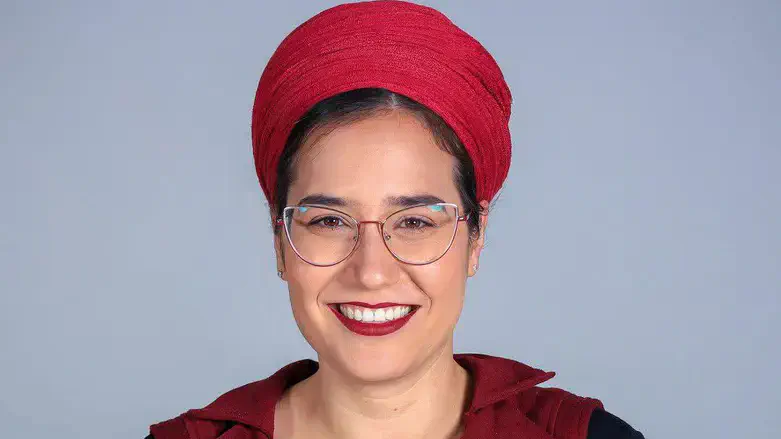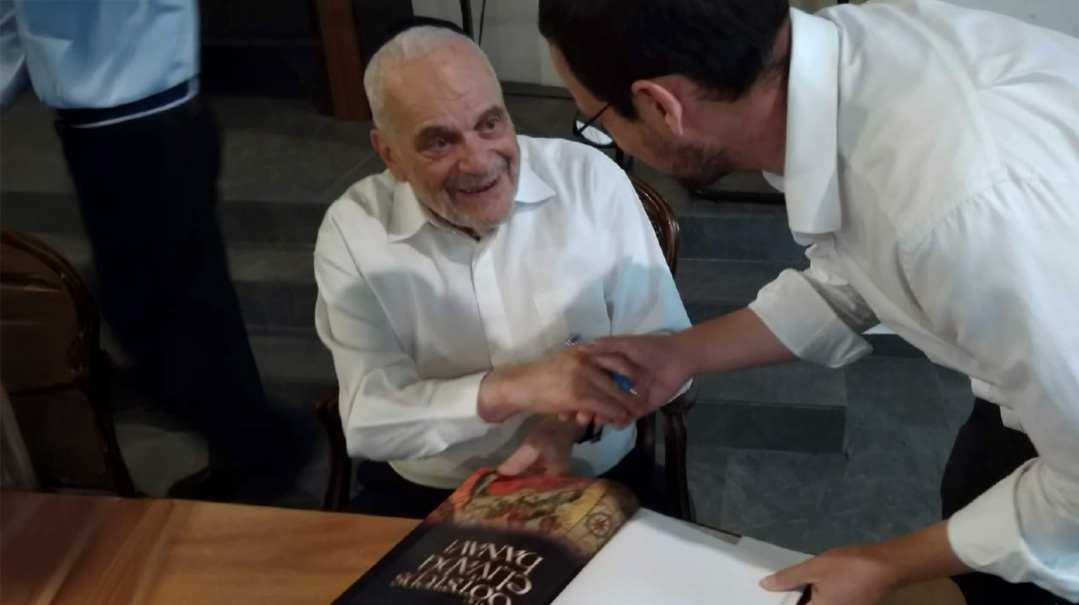Lighting Up the World
| May 20, 2025In her final gift to us, Tze’ela Gez Hy”d left not only the memory of a life beautifully lived — but the blueprint for how to live it

Photo: Courtesy of the family
J
ews the world over reeled at the news last Wednesday that Tze’ela Gez, 30, a mother of three driving to the hospital to deliver her fourth, was murdered by an Arab terrorist just outside her yishuv of Bruchin in Samaria. Her husband managed to take control of the car and get help. The baby was delivered by emergency Caesarean section at the hospital and remains in critical condition.
I didn’t know Tze’ela, but her husband, Hananel, is the brother of my friend, Rebbetzin Bat Chen Grossman of Kochav Yaakov. Bat Chen is a marriage coach who hosts the Connected for Real podcast, and I was her coworker in a graphic design studio for several years, and we’ve stayed in touch.
Even though the pain of losing her sister-in-law Tze’ela is still raw, she wants to talk about Tze’ela with me. Tze’ela, whose name means “acacia tree,” planted firm roots in this world and was a protective source of shade for others.
“My brother, Hananel, made aliyah at age 25, leaving behind the comforts of New York,” Bat Chen tells me. “He could have had it easy, but he’s an idealist, and his dream was to build a home on the soil of Eretz Yisrael. Then he met Tze’ela, a native Israeli who shared his vision. They were just perfect for each other.”
Tze’ela Gez, née Abayov, was raised in the Givat Ze’ev community on the outskirts of Jerusalem. Hananel married Tze’ela on 7 Cheshvan, the day Jews in Eretz Yisrael begin to daven for rain. This was especially meaningful to Tze’ela, who recorded a beautiful message for her wedding day about the significance of rain and how it gives life and growth. Tze’ela’s heart was in helping people grow, in nurturing their potential, especially in the most difficult situations.
“Both she and my brother have been through a lot in life,” Bat Chen tells me, “and it’s clear to me that Tze’ela wanted to harness the strength she found in her own challenges to help others find their koach.”
Tze’ela began her studies in movement and dance therapy and soon became deeply invested in trauma work, then moved on to chronic pain disorders.
“Her work was nothing short of miraculous,” says Bat Chen. “People came to her as a last resort, emotionally depleted and physically burdened, thinking there was no hope. But through her they found transformation and healing.”
Bat Chen recalls that at the levayah, one woman came over to tell her that Tze’ela had saved her daughter’s life.
“The thing is,” adds Bat Chen, “that this woman thinks she’s the only one. But there are hundreds more like her.”
When October 7 shattered normalcy, Tze’ela sprang into action. “Every yishuv has a tzevet cheirum yishuvi [community emergency staff],” Bat Chen explains, “and she headed the one in Bruchin.”
Tze’ela became the support for every woman on her yishuv whose husband had gone to serve. She delivered items, checked in, brought comfort, and made sure no one was forgotten.
“My brother stayed home with the boys,” says Bat Chen. “Their teamwork, their communication, their love — it was visible to all who knew them.”
Tze’ela was using her skills to help the local women, but she wasn’t content to keep her knowledge to herself. She recognized that the therapeutic modalities she had found most effective were still largely unknown, and when the war broke out, she gathered a group of therapists, psychologists, and coaches to whom she could teach these tools.
A veteran psychologist from Florida told her, “I’ve learned more from you than in 30 years of practice — you’ve taught me how to see people as whole and how to light up their path.”
“As a marriage coach I take six clients a week,” Bat Chen points out. “She was creating an entire movement.”
Tze’ela left behind more than a method. She left an army — a growing group of professionals equipped with tools and perspectives to carry her mission forward, and a series of online videos people can access to learn coping skills.
“She created the refuah before the makkah,” Bat Chen says. “My brother in New York called up and said, ‘It’s crazy! I’m watching a video of Tze’ela teaching me tools to deal with the trauma of her death.’ ”
Hananel and Tze’ela were raising three sons, aged ten, eight, and six. She was on her way to give birth to a fourth when she was killed.
“When they finally were expecting their fourth, they were shining with joy,” Bat Chen says.
Tze’ela was driving to the hospital because the doctors insisted she come for an induction. “Tze’ela loved driving,” Bat Chen says with a smile, “so even in her state, Hananel rode in the passenger seat while she was behind the wheel.”
Then Bat Chen’s face falls, and I assure her she doesn’t need to share anything more, but she continues.
“They had just exited their yishuv, and the terrorist must have been hiding in the bushes,” she says. “He was definitely a trained sniper. He was using a green laser. One second, Hananel saw the laser point on Tze’ela, and the next, the car was veering off the road.
“Hananel wasn’t sure yet what happened but he took control of the brake with his foot, while at the same time working to stop the bleeding. He called for help, and two ambulances came. Hananel reached the hospital before her, and once he was stable, they broke the news to him. Tze’ela had died of her wounds, and the baby was delivered, but in critical condition.”
Now the family continues to daven for this child, who will grow up in the shadow of his mother’s loss.
“But we all know that is completely not what Tze’ela would have wanted,” says Bat Chen. “I went into the shivah house today and I told everyone, ‘Next year, this baby is going to turn one, and on his birthday, we’re not going to have an azkarah. We’re going to have a birthday party with balloons and bouncy houses and laughter. That’s what Tze’ela would want. She’d say, ‘Move on and stop focusing on me. Bring light to the world.’ ”
Bat Chen recalls Tze’ela’s wish in life. “Tze’ela had once written a post: ‘I’m looking for ambassadors to light up the world.’ ”
That was her mission. She believed deeply that failing to see someone as whole — prematurely labeling them, ignoring their humanity — was sakanas nefashos. It could destroy a life. She guided colleagues on complex cases, sometimes intervening before misdiagnoses could take hold. Her clarity, conviction, and empathy set her apart. And she lived what she taught.
In her final gift to us, Tze’ela left not only the memory of a life beautifully lived — but the blueprint for how to live it. Let us be her ambassadors.
As this article goes to press, the Gez family asks that we continue to daven for Ravid Chaim (the name chosen by Tze'ela before her murder) ben Tze’ela.
(Originally featured in Mishpacha, Issue 1062)
Oops! We could not locate your form.







